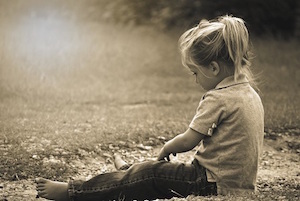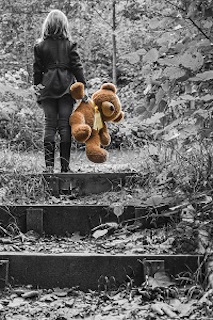Obituaries





















Search
Use the form above to find your loved one. You can search using the name of your loved one, or any family name for current or past services entrusted to our firm.
Click here to view all obituaries




















Use the form above to find your loved one. You can search using the name of your loved one, or any family name for current or past services entrusted to our firm.
Click here to view all obituariesThursday, July 27, 2017
 The loss of a loved one is never an easy time. When someone close dies, it can be difficult to deliver the news to friends and loved ones. Some of the hardest people to talk about death to
The loss of a loved one is never an easy time. When someone close dies, it can be difficult to deliver the news to friends and loved ones. Some of the hardest people to talk about death to
To help make this difficult conversation easier, we’ve compiled a list of do’s and don’ts for when you’re telling a child someone has died.
Be honest with them.
If you’ve lost someone close to you, you’re going to be upset about it. Rather than trying to hide your tears and pain or leaving your child wondering, be honest with them right away. By letting them know why you are upset and emotional, it can help them better understand the grieving process.
Make sure they know what this means.
It’s important to let your child know what death means. Using a word like death or died can be difficult but is ultimately more beneficial to your child. If you use words like went to sleep, the child may be confused. Let them know what death is so they are not left with any questions such as wondering when someone might “wake up” for instance.
Be ready for their reaction.
If this is the first time your child has lost someone in their life, be prepared for a variety of different responses. Everyone reacts to the initial trauma differently; your child may be upset or angry. Let the child deal with this initial trauma and have time to process it.
Prepare them for the future.
They may have questions about what life will be like without this person. If they were especially close to the deceased, make sure they know that there are still ways to celebrate holidays and other events without them there.
Prepare them for the funeral service.
Make sure you talk to the child about what to expect at the funeral service. Your child may have questions about burial or cremation so make sure they understand what is happening. If there is a viewing planned, make sure they are prepared for this beforehand. You should also discuss funeral etiquette, and how the day will go so they have time to prepare themselves.
Cry together.
Crying is a healthy part of the grieving process. Don’t feel the need to hide your emotions in front of your child. Crying together can be helpful in the healing process.
Don’t change your routine.
One of the most efficient ways to help your children cope is by sticking to their routine. By being consistent and keeping children in their routine of school and extracurricular activities, they will be able to see that their life is still very much the same as it was before.
Don’t hide your emotions.
If you are upset about the loss, don’t feel the need to hide it from your child. Letting them see you cry will help them understand how to deal with grief and that it's okay to feel upset after a loss.
Don’t set a grieving timeline.
Everyone copes differently in their own way and on their own time. Don’t feel like there is a particular length of time for you or your child to follow. Whether they get over the loss quickly or are upset for a while, it doesn’t mean they care more or less than you. Let them grieve in their own way.
Don’t be afraid to say I don’t know.
Your child will most likely have questions about death and what this means moving forward. Don’t be scared to say you don’t know the answer to a question. Let your child know this is a new chapter for everyone and that you are going to work through it together.
Don’t be afraid to laugh.
Laughter is often the best medicine. Don't hesitate to share stories and laugh with one another. It will help your family remember good times with your loved one and start to feel better.
 Final Thoughts
Final ThoughtsIt’s important to understand that it’s ok if you are struggling to find the ways to explain the loss of a loved one to your child. Dealing with the grief of losing someone is never easy, it can be even more challenging when you have to explain this to a child. Make sure you understand that the people around you are here for you and can help offer advice and assistance during this difficult time. Feel free to give us a call at 937-848-6651 or email us at info@connerandkoch.com, if you are looking for more advice on how to a child about death. We will be more than willing to hear your situation and provide some key talking points. We also have additional information on grief and dealing with death on our website.
Sources:
https://www.psychologytoday.com/blog/two-takes-depression/201612/the-dos-and-donts-talking-child-about-death
http://kidshealth.org/en/parents/death.html
Grieving doesn't always end with the funeral: subscribe to our free daily grief support email program, designed to help you a little bit every day, by filling out the form below.
It's hard to know what to say when someone experiences loss. Our free weekly newsletter provides insights, quotes and messages on how to help during the first year.